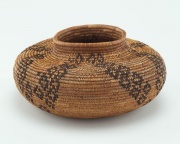Difference between revisions of "Fiber"
Jump to navigation
Jump to search
(username removed) |
|||
| Line 6: | Line 6: | ||
Sources of fibers are: | Sources of fibers are: | ||
| − | - animal: [ | + | - animal: [[wool]], [[alpaca]], [[mohair]], [[angora]], and [[silk]]. |
| − | - vegetable: [ | + | - vegetable: [[cotton]], [[kapok]], [[linen]], [[hemp]], [[jute]]. |
| − | - synthetic: [ | + | - synthetic: [[rayon fiber|rayon]], [[nylon fiber|nylon]], [[acetate fiber|acetate]], [[polyester fiber|polyester]], [[acrylic fiber|acrylic]]. |
| − | - mineral: [ | + | - mineral: [[asbestos]], [[glass fiber|glass]], [[carbon fiber|carbon]], [[tungsten]]. |
The types of fiber are characterized as: | The types of fiber are characterized as: | ||
| Line 18: | Line 18: | ||
- staple: short fibers. | - staple: short fibers. | ||
| − | - [ | + | - [[monofilament|monofilaments]]: continuous single fibers. |
| − | - [ | + | - [[tow]]: a continuous strand of bundled but untwisted fibers. |
| − | - [ | + | - [[yarn]]: a continuous strand of twisted fibers. |
== Synonyms and Related Terms == | == Synonyms and Related Terms == | ||
Revision as of 10:12, 15 January 2014
Description
A long, thin filament with a length at least 100 times its diameter. Fibers are used to make fabric, paper, mats and as fillers and strengtheners in composite materials.
Sources of fibers are:
- animal: Wool, Alpaca, Mohair, Angora, and Silk.
- vegetable: Cotton, Kapok, Linen, Hemp, Jute.
- synthetic: rayon, nylon, acetate, polyester, acrylic.
- mineral: Asbestos, glass, carbon, Tungsten.
The types of fiber are characterized as:
- staple: short fibers.
- monofilaments: continuous single fibers.
- Tow: a continuous strand of bundled but untwisted fibers.
- Yarn: a continuous strand of twisted fibers.
Synonyms and Related Terms
fibers; fibre (Br., Fr.); fibra (Esp.); vezel (Ned); fibrous substance;
Other Properties
Fibers are characterized by their shape, strength, elasticity, flexibility, weight, stability and ability to absorb moisture
Additional Information
G.Cook, Handbook of Textile Fibres:I. Natural Fibres, 5th edition, Merrow Publishing Co., Durham, England, 1984.
Comparisons
Properties of Synthetic Fibers
Authority
- Fairchild's Dictionary of Textiles, Phyllis G.Tortora, Robert S. Merkel (eds.), Fairchild Publications, New York City, 7th edition, 1996
- Hoechst Celanese Corporation, Dictionary of Fiber & Textile Technology (older version called Man-made Fiber and Textile Dictionary, 1965), Hoechst Celanese Corporation, Charlotte NC, 1990
- The Dictionary of Paper, American Paper Institute, New York, Fourth Edition, 1980
- E.J.LaBarre, Dictionary and Encyclopedia of Paper and Paper-making, Swets & Zeitlinger, Amsterdam, 1969
- R. J. Gettens, G.L. Stout, Painting Materials, A Short Encyclopaedia, Dover Publications, New York, 1966
- G.S.Brady, Materials Handbook, McGraw-Hill Book Co., New York, 1971
- Mary-Lou Florian, Dale Paul Kronkright, Ruth E. Norton, The Conservation of Artifacts Made from Plant Materials, The Getty Conservation Institute, Los Angeles, 1990
- Matt Roberts, Don Etherington, Bookbinding and the Conservation of Books: a Dictionary of Descriptive Terminology, U.S. Government Printing Office, Washington DC, 1982
- A.Lucas, J.R.Harris, Ancient Egyptian Materials and Industries, Edward Arnold Publishers Ltd., London, 4th edition, 1962
- Theodore J. Reinhart, 'Glossary of Terms', Engineered Plastics, ASM International, 1988
- Art and Architecture Thesaurus Online, http://www.getty.edu/research/tools/vocabulary/aat/, J. Paul Getty Trust, Los Angeles, 2000
